Knowing the Source of a Recipe (Why it’s Critical in Cooking and Baking)
Knowing the source of a recipe is critical to your cooking and baking results. It can also be the difference in you being a good cook versus a bad cook!
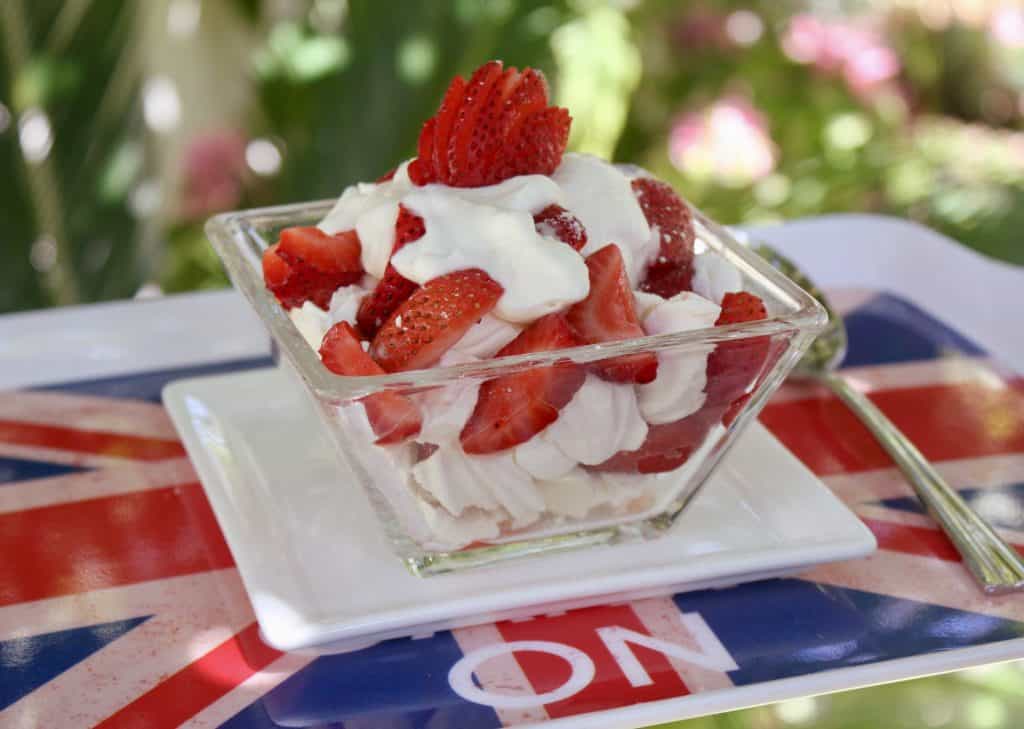
Traditional British Eton Mess truly needs no recipe, in my opinion. However, what if you’ve never heard of Eton Mess?
As an Amazon Associate I earn from qualifying purchases.
This is probably the case with most people outside of the UK, and if you have heard the name in passing, you still may not have a clue what it is. For the Eton Mess recipe, scroll to the bottom, or click on the photo below.
Knowing the Source of a Recipe
The other day I happened across another blogger’s post and recipe for Eton Mess. She wasn’t British and as far as I could tell, quite possibly had never even been ‘across the pond’. Why did I think this? Because her description told me that she truly didn’t know what Eton Mess was. She described it as a trifle.
Eton Mess is not a trifle. Eton Mess, for those of you who don’t know, is a dessert consisting of crushed meringues, strawberries and cream; not layered as a trifle or with the ingredients of a trifle.
Credit, where credit is due-on recipes. Does it exist anymore?
I must also note that most recipes I see on many blogs and recipe pages contain no credit to the original source, or source of inspiration. We can all admit, almost no one is creating a truly “original” recipe at this point in time so what harm is done in knowing the source of a recipe? I don’t understand why it’s frowned upon.
I always try to credit each recipe I share because it gives the reader a sense of background on the recipe and it’s just the right thing to do. Whether it was something my Nonna made and passed down to her daughters, a recipe I created from one I had at a restaurant, or one I’ve been using from a favorite cookbook, I will almost always credit a source with “credit…”, “adapted from…”, or “inspired by…”.
When I go to a site and see a recipe for a triple layer chocolate cake with Italian meringue (just making up an example) and the authorship for the recipe goes to the young blogger who has never been to cooking school, I wonder where he or she originally got the inspiration/original recipes from.
Why not give credit where credit is due? It’s only fair. I’ve seen my recipes copied in full on other sites, with no attribution to me, or my site, and I can tell you, it’s frustrating and disheartening. Facebook is rife with recipe sharing groups which demand that recipes be copied and pasted into their files! :( I recently followed one of my own photos on Google images, only to end up on another blogger’s page for an almost identical recipe! ☹️
A few years ago, I came across a blog post which blew me away. It was so ridiculously similar to my friend Cathy’s recipe post (from two years prior) for teabag cookies AND hedgehog cookies in the same post! I actually called the blogger out on what she’d done. It was so obvious that no one would ever post about such a random pairing of cookies on the same post.
To add insult to injury, the food styling with pink china teacups was the same, too. She also had a photo on how to use a straw to make the hole for the string for the teabag, identical to Cathy’s. Not only did she deny that she’d seen it, but for some reason, she gave credit to two other bloggers, and to this day, has never changed a thing.
My point: I see things like this EVERY. SINGLE. DAY. Most readers never question knowing the source of a recipe, and why should they if they have no idea that this is going on?
I asked my Facebook readers about recipe searching the other day, and out of hundreds of responses, only one reader stated that she actually considered whether the recipe was the author’s own work.
The majority of recipe-searchers find a recipe, maybe the photo looks good (I’ve had legitimate online sources–newspapers–publish my photo with someone else’s recipe–I kid you not), ingredients look right, so they try it. Whether it works or not is another issue.
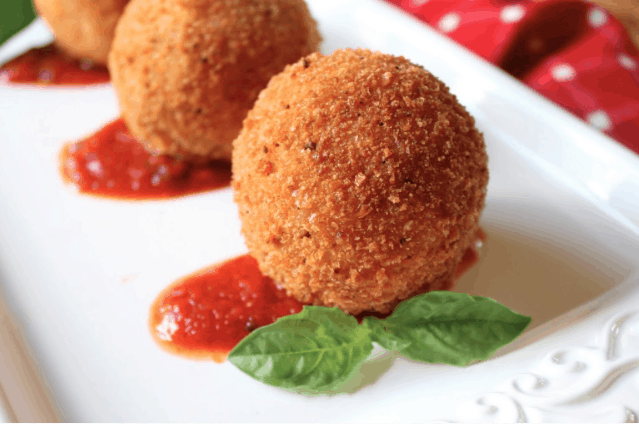
Where does the blame lie? You’re probably not such a bad cook/baker after all!
Have you ever told yourself you’re a bad cook or you’ve failed trying to make or bake a recipe that you were excited about? Did you ever consider that it’s not YOU, but the recipe? There are so many recipes available that have never (ever) been made in a kitchen!
This article in the LA Times expresses my concerns precisely. People are using recipes every day that are doomed to fail, and often blame themselves. My favorite part of this article is a quote from award-winning cookbook author, Rose Levy Beranbaum~
“It’s more important than anything to be able to trust the author.”
For example, I cannot tell you the number of arancini recipes I’ve seen that I can tell that from just reading the recipes that they won’t produce good results. I feel terrible for people who will endeavor to make them, only to be disappointed with a failure and blame themselves. Most people won’t know that a recipe won’t work just from reading the ingredients and directions.
I personally know of a site where the blogger buys a stock photo and creates a recipe to go with said photo. No wonder she claims that food blogging is easy! It is if you never have to buy ingredients, prepare them, cook them, photograph them, clean up, or edit the photos! However, would you want to use her recipes? I can tell by reading them that they are a disaster waiting to happen. It’s so sad for anyone who finds and uses them.
How to find a trustworthy and reliable recipe.
Know your source.
So what is a reader to do? Know your source. If you’re not going to your favorite blogger’s site that you already know and trust, when you do a search, look at the “about” page. There isn’t one? Hmmm–that’s the first red flag. Many of the scraper sites that steal online content make their page look like a blog, complete with a photo (usually of a pretty, young woman), but there is no trace of a human, where they are located, no email, or contact form. I’d advise you to steer away from all of these pages.
Does the author have the knowledge/authority/experience to post this recipe?
Is the recipe for Eton Mess? Is the author British? Do they explain some British connection in their post that would make their recipe trustworthy? For example, I recently posted a recipe for Filipino lumpia. Filipino Lumpia on a Scottish/Italian focused site? Here’s the reason you can trust my recipe: my next door neighbor taught me how to make them. The recipe is authentic because she is from the Phillipines, and she gave me her permission to share her authentic recipe.
Many of my readers stated that they use AllRecipes as a resource for finding recipes. Here’s the problem with AllRecipes, Epicurious, and other sites that allow uploading of recipes to their site: anyone can copy and paste any “recipe” to that site.
There is no credit given from where the recipe came from, and the fact of the matter is, most people have no idea that what they are doing is illegal (copyright infringement). They truly mean no harm, but it’s a big problem for recipe developers.
What is the author’s background? Trained chef? Home cook? Ethnic cooking in their repertoire? Baking pro? “Jack-of-All-Trades”?
I’ve learned that just because someone has gone to cooking school doesn’t mean that they’re a great cook. A home cook who has never been trained can also be a fantastic cook. If someone is spouting off how fabulous a recipe is without credit to a source, background or authentic reviews from readers who have made that recipe, do a bit more looking.
Do the recipes seem like they belong on the same site? Or is it a crazy conglomeration of the latest foodie fads and whatever else has struck their fancy that week? I often find that sites with the most authoritative voice on having “the best recipes out there”, tend to be among the weakest. On the other hand, Amanda from i am baker, could probably bake and decorate cakes in her sleep, but never toots her own horn. She lets her creations do the talking for her.
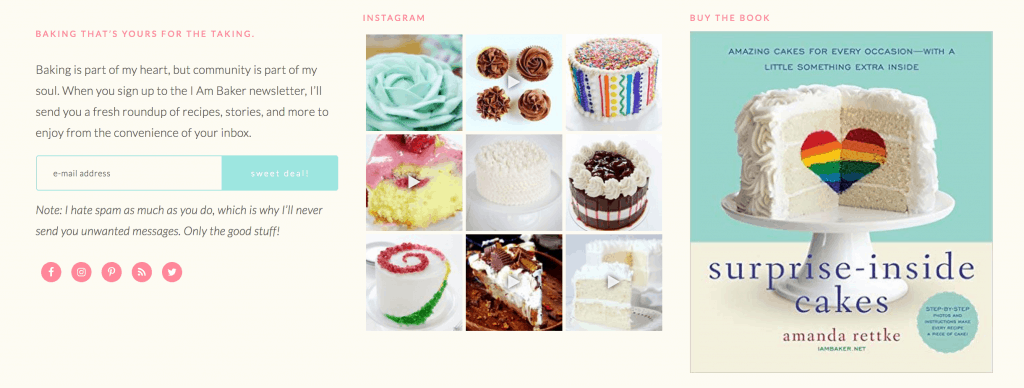
Don’t get me started on all the faux Italian recipes that are floating around the internet. Why use “Italian” when nothing remotely similar has ever been seen across the entire Italian peninsula from the time that the Etruscans were there? Because the word “Italian” makes everything better, more appealing and more genuine. Check out my friend Robert’s site, STOP ITALIAN SOUNDING. He’s big on TikTok and Instagram and you’ll enjoy learning about all things Italian (and what is NOT Italian).
Want a super source for authentic Italian food? Then go to a site like Memorie di Angelina. Frank gives an in depth history of the dish and so much more than just a recipe. You just may end up reading his posts even if you don’t like to cook!
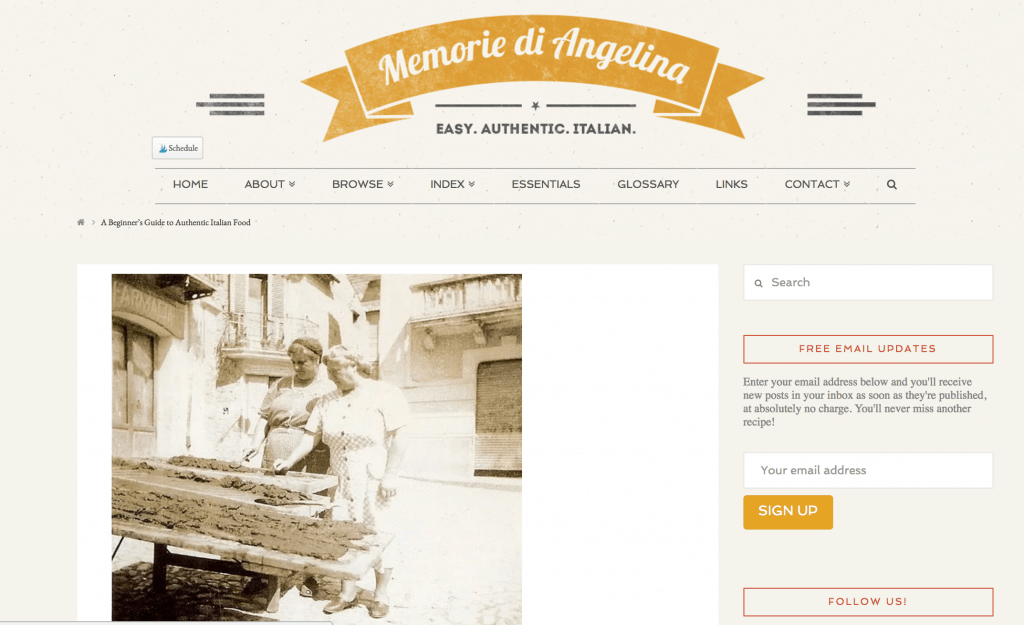
My real life pal, Valentina from Cooking on the Weekends is a trained chef, so I wrote all about her to let you know.
Comments/Reviews that Help in Knowing the Source of a Recipe
I’m very cynical when it comes to reviews, in the same regard as when I read TripAdvisor reviews. Why? I don’t know who is commenting. Have they actually made the recipe? Does the reviewer only comment on the recipe or dish itself? I can’t tell you how many “internet trolls” there are, boucing around the web leaving awful comments all over the place for no reason other than how it makes them feel (powerful?).
Many times, bloggers comment on a friend’s recipe, simply as support. I do this, and in turn, receive similar comments on my recipes. Scroll past these and look at the comments and reviews of readers who have made the dish.
A thousand comments doesn’t equate to a good recipe. I rarely delete any comments, even if they are bashing my recipe, because in the midst of a sea of great reviews, it will be clear that the problem isn’t with my recipe, but with the reviewer.
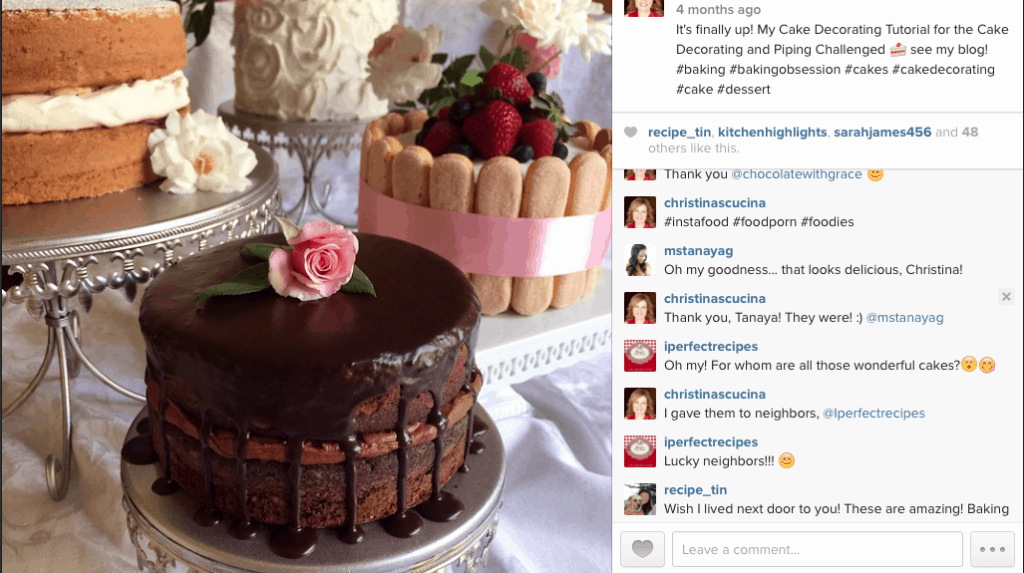
For example, when I first posted my perfect yeast doughnut recipe which I slightly adapted from a bread cookbook, I got some really mixed reviews. Some raved, others complained–a lot!
What I realized after a while, was that the negative reviewers weren’t taking my advice on weighing the ingredients and were making BIG mistakes when using cups. They were mixing up weight and volume which was their fault, not mine. However, they would come back to my recipe page and rip me and the recipe apart. I can’t tell you how frustrating it was on my end, knowing that this was such a solid and foolproof recipe.
Finally, I did what I should have done to begin with–I removed the cups measurements so if anyone wanted to make my doughnuts, they’d have to weigh the ingredients. Guess what? Problem solved! No more nasty and negative comments (besides trolls)! Great reviews keep rolling in and I couldn’t be happier! However, my readers, I’m sure, are even happier with their perfect, fluffy doughnuts!
_________________________
Readers Appreciate Knowing the Source of a Recipe
I hope that after almost 6 years (over 10 now!) of sharing recipes (and travel tips) that I’ve gained your trust. I know for a fact that many of my readers can trust my recipes because they’ve tried them and they work. They also tell me that they enjoy knowing where I came upon the recipe. This is a recent comment I received, and I can’t tell you how much it meant to me.
“ps I aways enjoy visiting your site – beautifully done, great descriptions and wonderful photos. You give us so much information and break down all the necessary steps so well. You have become the only food blogger I check regularly!” –Judy11
My recipes are reliable because I won’t post anything which hasn’t worked for me. In turn, there are certain bloggers who I have learned that I can trust. The most obvious is a friend whose recipes I share on my Facebook page every day: Cynthia from What a Girl Eats.

Not only do we have the same “foodology” (I couldn’t resist), or ideology regarding food, such as keeping away from processed ingredients, but we are also honest and ethical. Cynthia’s recipes are solid for a minimum of two reasons: she’s gone to cooking school, is passionate about cooking, and feels the same as me in knowing the source of a recipe!
Cynthia has also traveled all around the world, including living for some time in the UK. Whenever I ask her for cooking advice, she’s never at a loss.

Of course there are other fabulous bloggers with very reliable recipes, and you’ll see them shared on my Facebook page, too. For example, Jill from Mad About Macarons has some phenomenal recipes that are simple to make, too (I’ve used them) and she’s the author of two French pastry cookbooks.
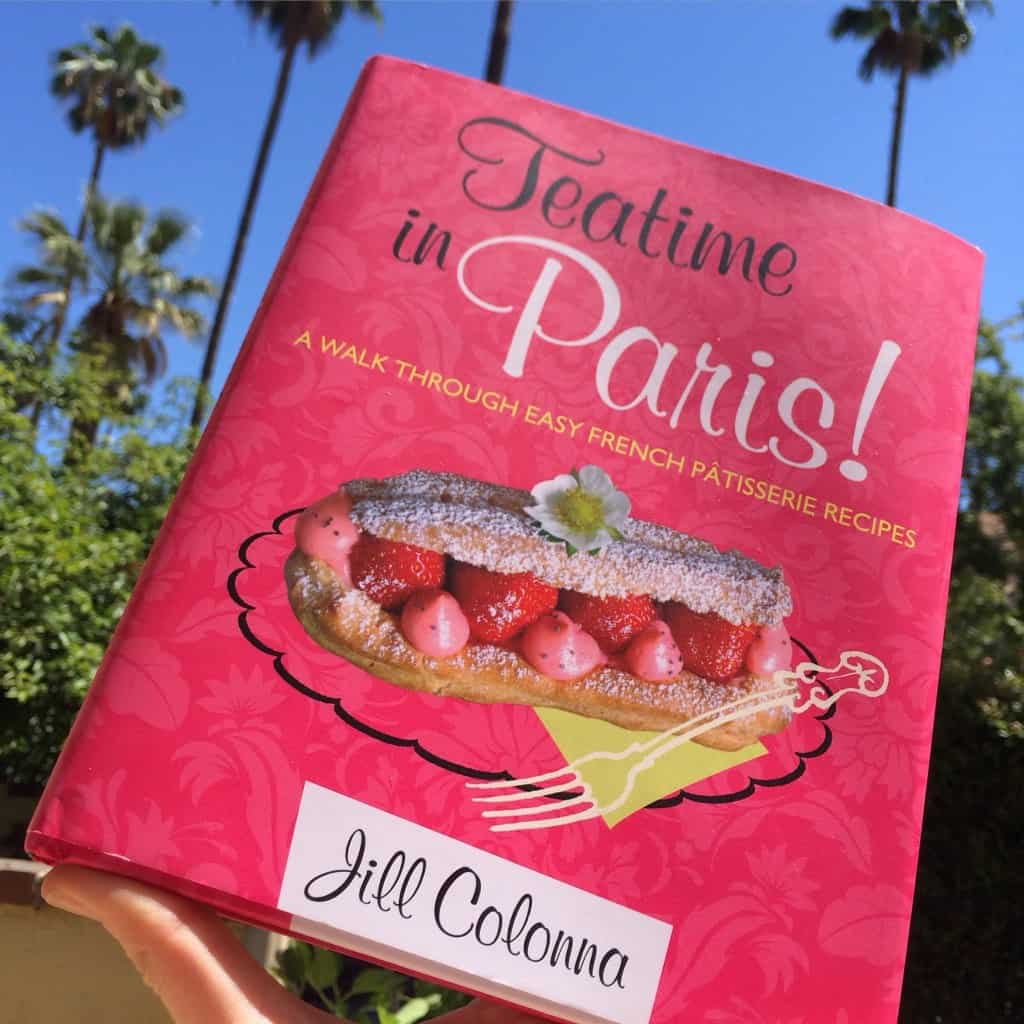
I’m going to add that you should be following Nancy Birtwhistle (Great British Bake Off winner) on Facebook or Twitter as she’s been sharing brilliant tips. Saying that her baking is top-notch goes without saying, too!
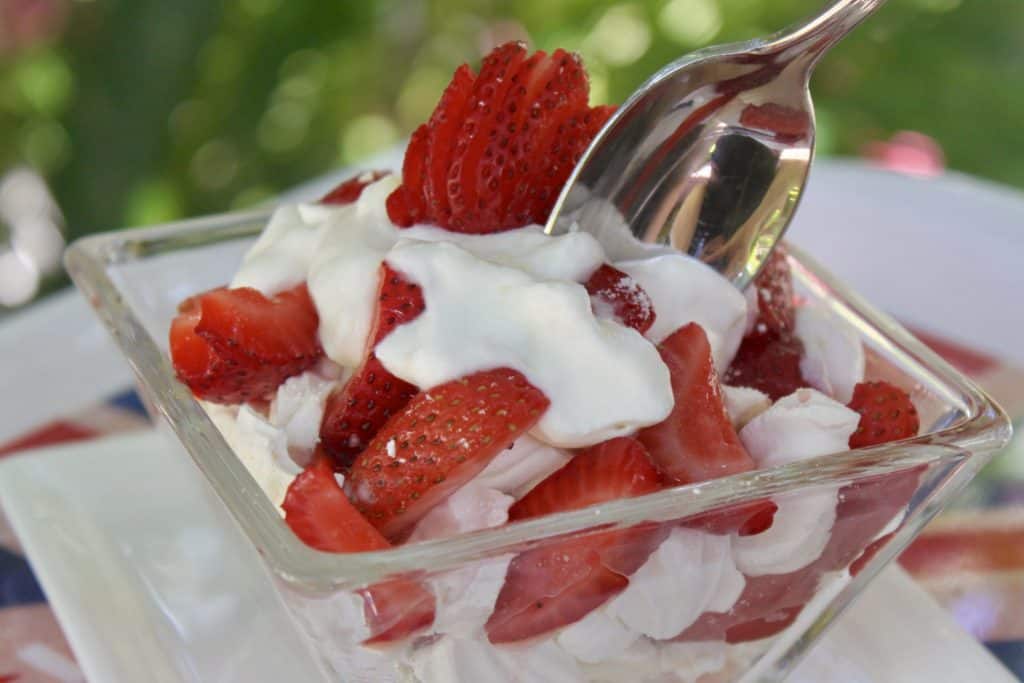
Back to Eton Mess. I’ve had this classic British dessert on my list of recipe drafts for years. Having a Scottish/British site, it’s almost a crime not to have the recipe available. However, given that Cynthia already has Eton Mess on her site, I’m going to send you there for this super-easy, summertime dessert.
Click the link or photo below to go to Cynthia’s recipe for a twist on a traditional Eton Mess.
What’s your experience in knowing the source of a recipe you find on the internet? Do you look for more than a few sources, or go with the first one you find on google? Are my tips helpful? Let me know in the comment section below.
Don’t miss another travel or recipe post; subscribe to my free subscription below!
Christina’s Cucina is a participant in the Amazon Services LLC Associate Program, an affiliate advertising program designed to provide a means for sites to earn advertising fees by advertising and linking to Amazon.com.


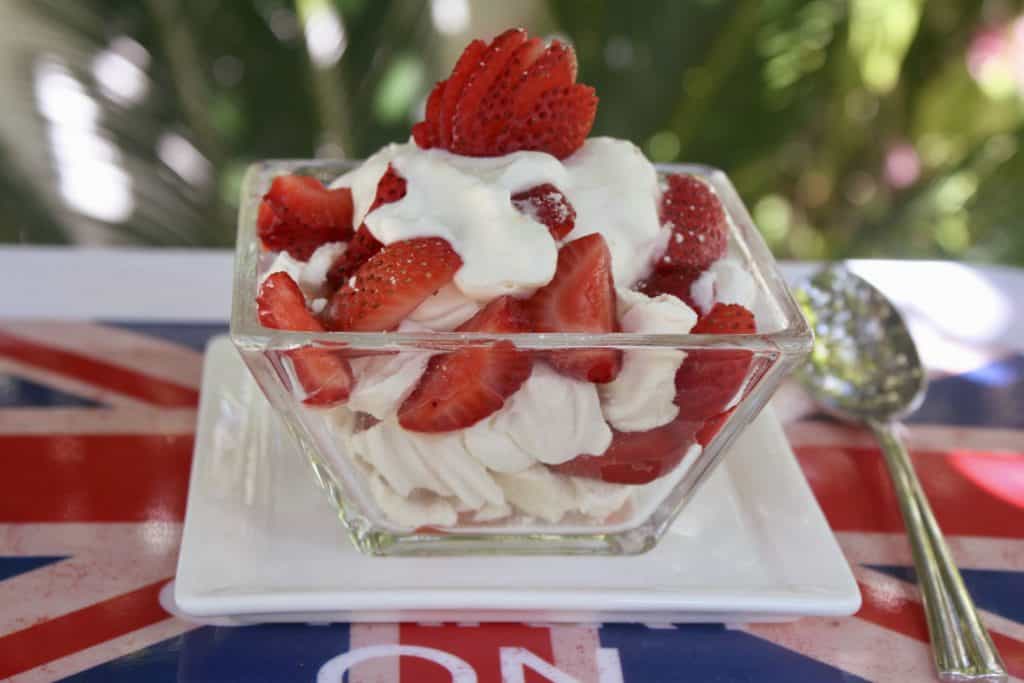
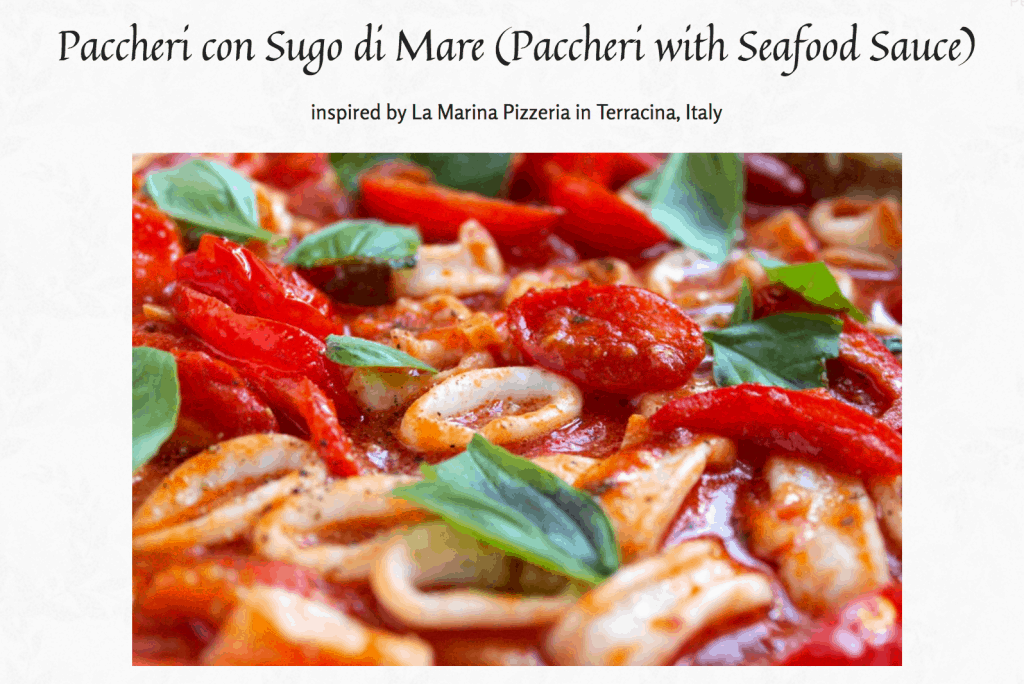
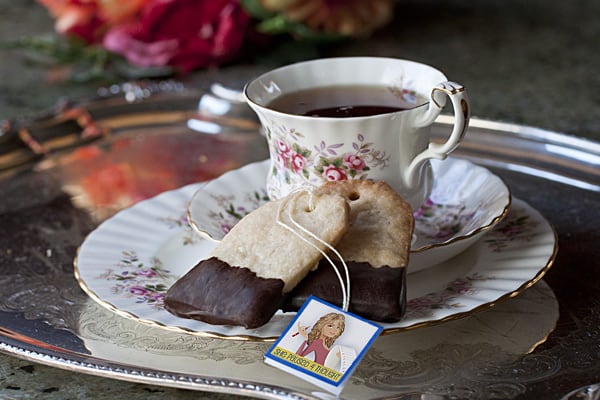
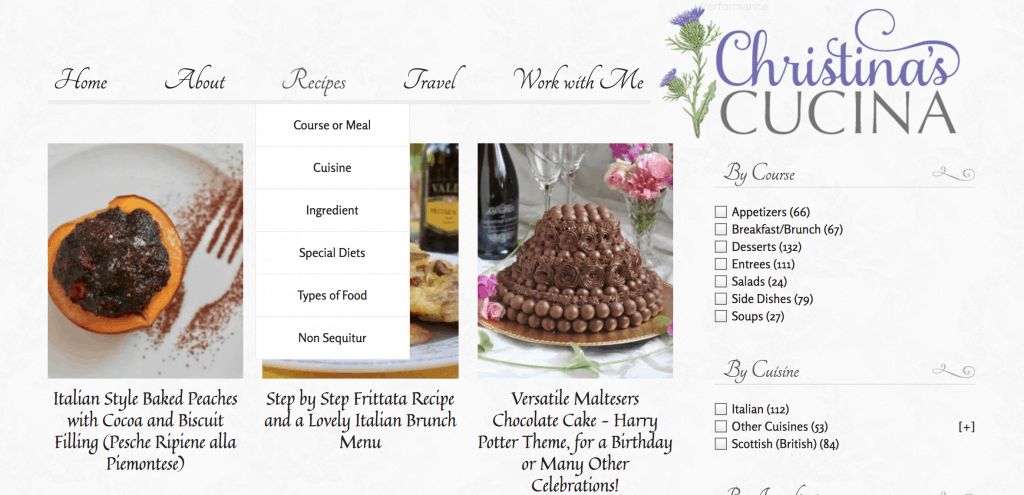
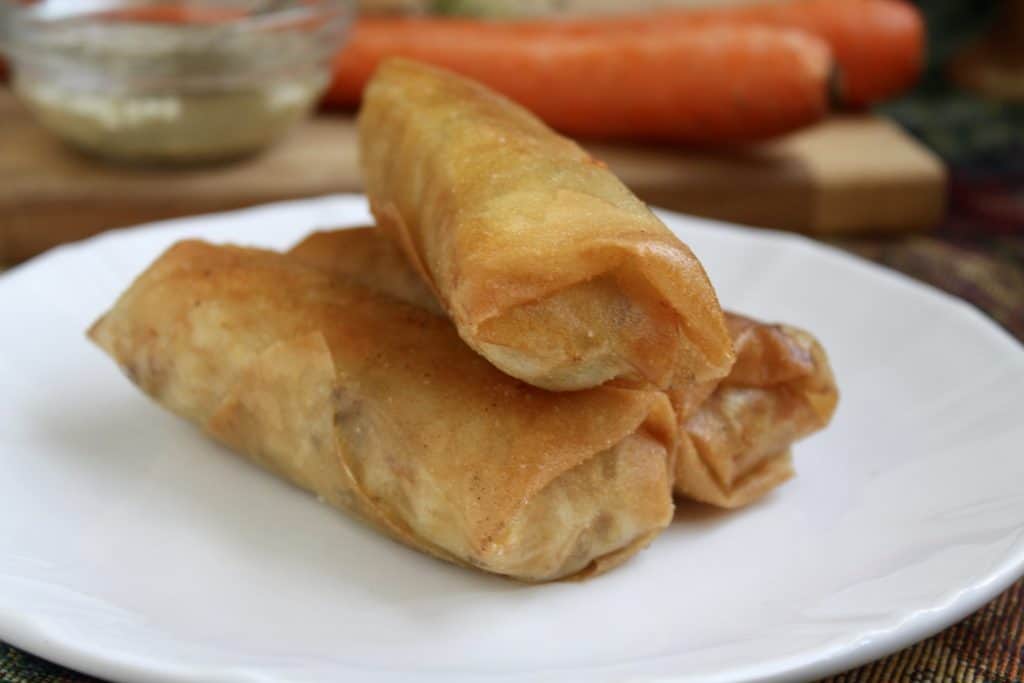
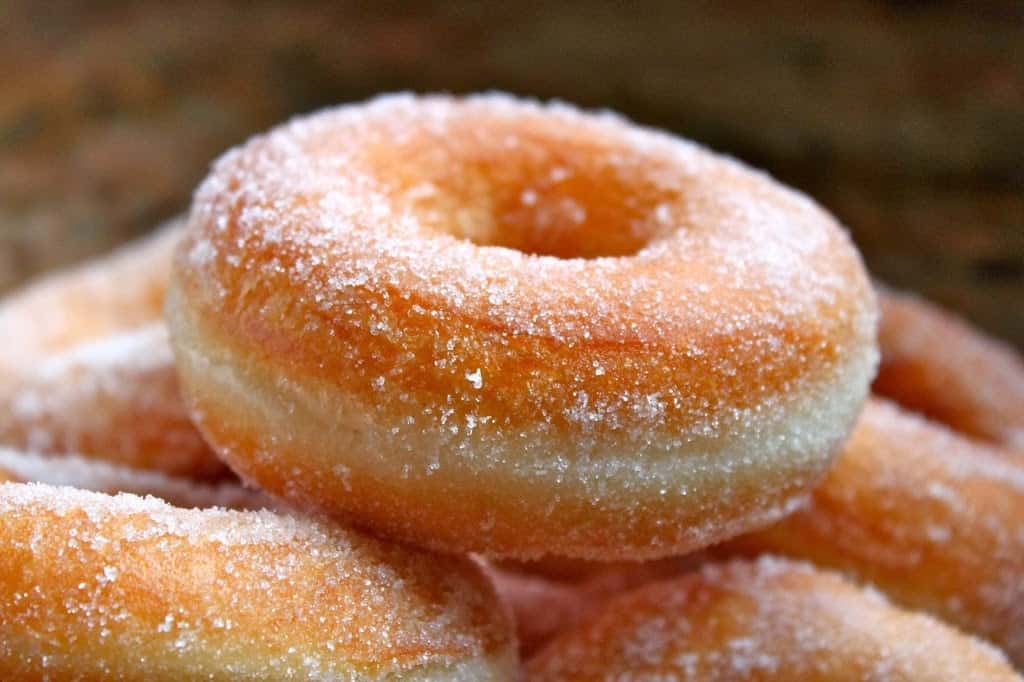
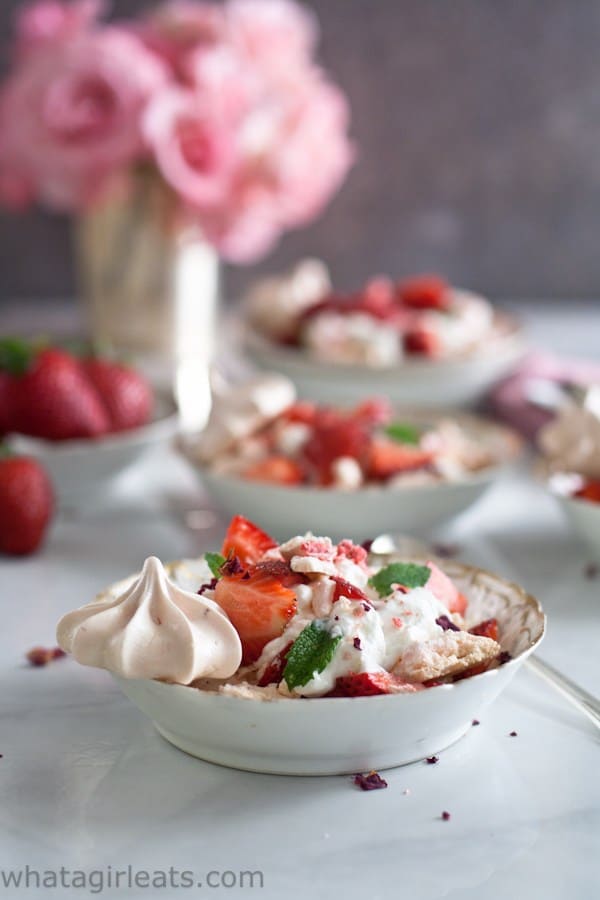
I didn’t know how Allrecipes worked, but I always read the recipes and often I know they aren’t going to work. I’ve been cooking since I was three at my mother’s side, and I love your site because you do tell us the backgrounds in origins of your recipes.
This is an excellent article, and ought to be published all over the place so that people can see why they’re cooking attempts are failing. even on my file in my computer I make a note of where I got the recipes and I don’t even publish anything.
Yep, I cannot even go on that site as I am quite sure many, many of my recipes have been copied onto that site and people are using it without any credit to me, or readers knowing I was the one who did all the work. :( This goes for all the hard-working recipe developers who put hours and days and sometimes weeks into just one recipe. It’s wrong, but most people have no clue these are what they are using. And yes, the flipside is that horrible “recipes” are being used on that site and people end up wasting time and ingredients.
I wish I could publish it in the NY Times, it might make a difference then. Thank you, Diane.
I’m 77 don’t do Facebook or anything other than email or text. I found Christina’s site and I love it. she explains what she is writing about whether recipe or origion. I did about year ago ask her about Scotish recipes I got into while reading her sight ,lost it wrote to her & she said it wasn’t here’s. that’s when I found out about other people can jump in & with their so called recipes and at my age I think still on Christina’s page. so she us perfectly correct. my recipes wasn’t Christina’s and it was honestly ROTTEN. I love all her recipes even if at my age don’t try all of them. the ones I do I enjoy. Keep up good work and keep tell truth so called eejits. she knows what that means. Mary Patton
I’m so sorry you wasted your time and ingredients on a recipe that didn’t work, thinking you were using my recipe, Mary. One would think it’s easy to find a recipe online and use it with great results, but it’s not that easy. Yes, there is a “Scottish” recipe site sharing Scottish recipes, but they are not Scottish at all. It hurts me to see that people would do this and dupe others, especially since they credit no one with those recipes.
You know, I don’t cook much and now reading this post I understand why. Whenever i want to do something i stick with the first recipe i find without thinking much of it… Of course most of the time it goes wrong and i get frustated… I’m gonna go buy a cooking book and keep reading your blog. Thanks for your brillant work!!
I completely understand why you’d get frustrated, Mery. The thing is, it’s not your fault, but we often blame ourselves thinking that the recipe developer knew what they were doing! I think it used to be safer with old cookbooks, but now with ANYONE being able to publish recipes, it’s pretty risky business to use the first one you find. Do you know I read a blogger’s post last week that she didn’t know how to boil water until whe was 30?! AND SHE NOW HAS A FOOD BLOG (and doesn’t even look 40)! Ugh. Hope you land a reputable cookbook and know my recipes are truly tried and tested! :)
What a brilliant post! It is so disheartening seeing your work just copied. You put so much time and effort into getting a recipe as perfect as can be, and then someone just spends a few minutes claiming it as their own.
I recently had this with the most popular recipe on my blog. When I wrote it there were no other versions of it anywhere that I could find. I always give a bit of background to where the ideas for my recipes come from as well as any tips to make sure people achieve the best results, so that part of my posts is always personal to me and my experiences. A cake blogger even had the nerve to copy that part!! She rapidly changed it when I put a tweet up saying that I was aware of someone blatantly copying, and she slightly changed the recipe. No credit for the idea though. Most of her blog is copied from one person in particular. It’s frustrating that there’s no easy way to report it and get it resolved.
Love the look of all the genuine recipes you have mentioned. Looks like some great blogs to follow. And your recipes look mouthwateringly good xx
Thanks, Corrina! I’m sure you can relate; it truly is so disheartening! People have no clue that these recipes are copied, and that’s the hardest part. I felt at a loss which is why I wrote this post. Thank you for your lovely comments and good luck! CC